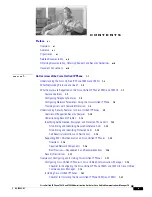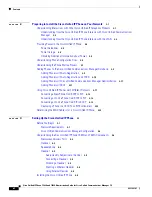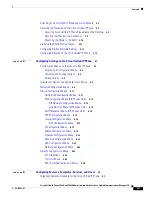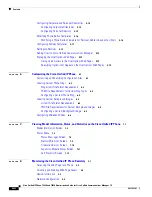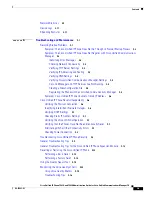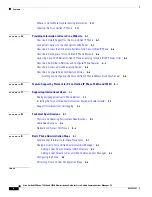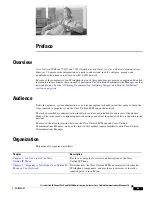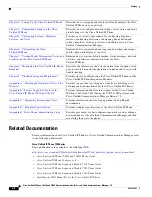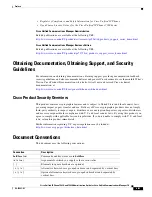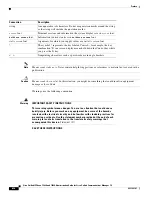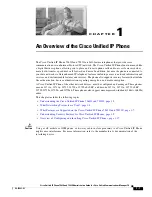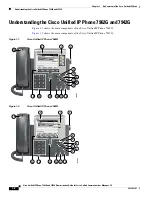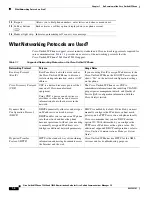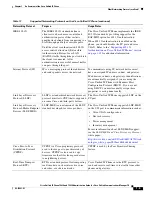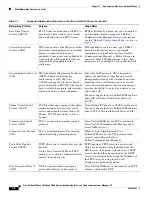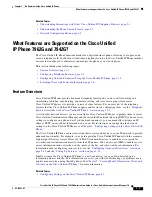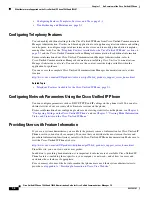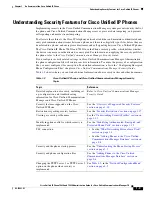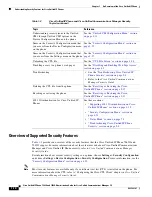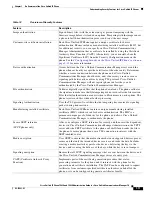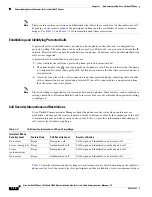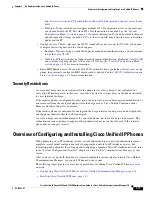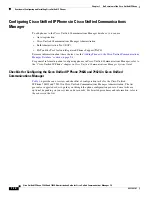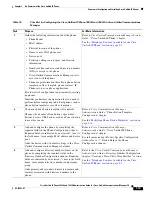
1-4
Cisco Unified IP Phone 7962G and 7942G Administration Guide for Cisco Unified Communications Manager 7.0
OL-15483-01
Chapter 1 An Overview of the Cisco Unified IP Phone
What Networking Protocols are Used?
What Networking Protocols are Used?
Cisco Unified IP Phones support several industry-standard and Cisco networking protocols required for
voice communication.
Table 1-1
provides an overview of the networking protocols that the
Cisco Unified IP Phone 7962G and 7942G support.
14
Keypad
Allows you to dial phone numbers, enter letters, and choose menu items.
15
Softkey buttons
Each activates a softkey option (displayed on your phone screen).
16
Handset light strip
Indicates an incoming call or new voice message.
Table 1-1
Supported Networking Protocols on the Cisco Unified IP Phone
Networking Protocol
Purpose
Usage Notes
Bootstrap Protocol
(BootP)
BootP enables a network device such as
the Cisco Unified IP Phone to discover
certain startup information, such as its IP
address.
If you are using BootP to assign IP addresses to the
Cisco Unified IP Phone, the BOOTP Server option
shows “Yes” in the network configuration settings
on the phone.
Cisco Discovery Protocol
(CDP)
CDP is a device-discovery protocol that
runs on all Cisco-manufactured
equipment.
Using CDP, a device can advertise its
existence to other devices and receive
information about other devices in the
network.
The Cisco Unified IP Phone uses CDP to
communicate information such as auxiliary VLAN ID,
per port power management details, and Quality of
Service (QoS) configuration information with the
Cisco Catalyst switch.
Dynamic Host
Configuration Protocol
(DHCP)
DHCP dynamically allocates and assigns
an IP address to network devices.
DHCP enables you to connect an IP phone
into the network and have the phone
become operational without your needing
to manually assign an IP address or to
configure additional network parameters.
DHCP is enabled by default. If disabled, you must
manually configure the IP address, subnet mask,
gateway, and a TFTP server on each phone locally.
Cisco recommends that you use DHCP custom
option 150. With this method, you configure the
TFTP server IP address as the option value. For
additional supported DHCP configurations, refer to
Cisco Unified Communications Manager System
Guide
.
Hypertext Transfer
Protocol (HTTP)
HTTP is the standard way of transferring
information and moving documents across
the Internet and the web.
Cisco Unified IP Phones use HTTP for the XML
services and for troubleshooting purposes.


